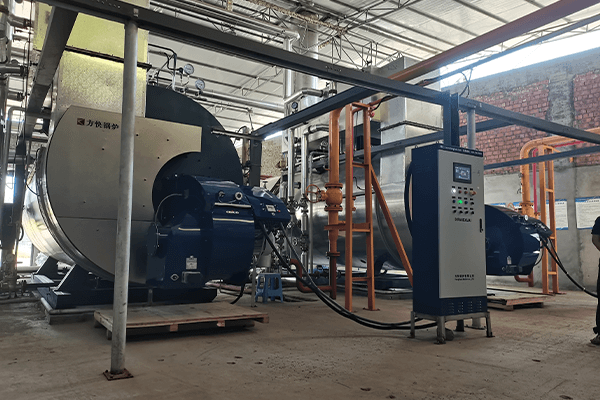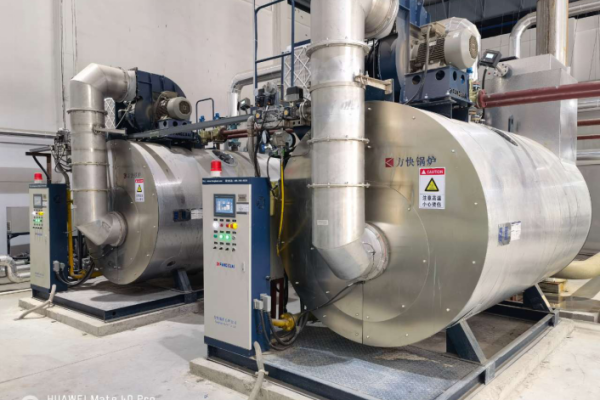Considering converting your oil boiler to gas? Discover the benefits, likely costs, and how to book a professional survey and quote.
Can an Oil Boiler Be Converted into a Gas Boiler?
Yes — in many cases an oil boiler can be converted to run on natural gas, but whether it’s practical or allowed depends on the boiler model, the availability of a gas supply, local regulations, and safety considerations. Some older oil boilers cannot be safely or economically converted and are better replaced with a modern gas-fired unit designed for gas burners. A qualified heating engineer should inspect the existing oil boiler and the site to give a definitive recommendation.
Advantages and Disadvantages of Converting an Oil Boiler to a Gas Boiler
Advantages of converting an oil boiler to gas
-
Lower fuel cost and running expenses: In many regions natural gas is cheaper per kWh than heating oil, which reduces operating cost.
-
Cleaner emissions: Gas burns cleaner than oil — lower particulates and sulfur dioxide — helping with emissions compliance and local air quality.
-
Lower maintenance: Gas systems generally need less frequent burner maintenance and no oil tank management (no delivery, no tank corrosion risk).
-
Space and convenience: Eliminates the need for an on-site oil tank and fuel deliveries.
-
Modern options: Converting or replacing with a condensing gas boiler can improve overall system efficiency significantly.
Disadvantages and limitations of converting an oil boiler to gas
-
Upfront cost: Conversion or replacement requires parts, labour, possible chimney/flue modifications, and gas service work. Initial outlay can be significant.
-
Not always feasible: Some oil boilers are not suitable for safe conversion (design limitations, age, or manufacturer restrictions).
-
Gas supply required: If there’s no municipal gas pipe nearby you may need an expensive gas connection or consider LPG — which has different costs and logistics.
-
Regulations and permits: Gas work must meet local codes and usually needs certified technicians and official permits/inspections.
-
Safety considerations: Incorrect conversion or poor installation increases the risk of leaks, carbon monoxide or combustion problems — professional installation and commissioning are essential.
Converting an Oil Boiler to Gas: Cost (What to Expect)
Conversion costs vary widely by country, property type, and project scope. Factors that affect cost include: whether the existing boiler is convertible, the required burner and control parts, flue/chimney modifications, gas supply installation, labour rates, and required safety inspections.
Typical cost components:
-
Site survey & design — professional inspection and advice.
-
Gas burner kit or new boiler — sometimes replacing the entire boiler is more cost-effective than retrofitting.
-
Gas supply connection — tie-in to municipal gas network or LPG tank delivery.
-
Flue/venting work — may need new stainless flue liners or concentric flues.
-
Controls, piping & valves — new gas piping, safety shutoffs, thermostats.
-
Labour, testing & certification — commissioning and safety certificate.
Estimated ranges (very approximate):
-
Small domestic conversion (if boiler is convertible and gas supply exists): a few thousand USD / equivalent in local currency.
-
Domestic replacement with a new gas boiler: typically several thousand to low-five figures (USD) depending on boiler capacity and complexity.
-
Commercial or large industrial systems: can be tens of thousands USD or more — often a bespoke quotation is required.
Because prices and regulations differ widely, we recommend obtaining a site-specific quotation. We provide free initial assessments and tailored quotes.
How to Contact a Boiler Renovation Service Provider for Oil Boiler to Gas Conversion
If you’re interested in assessment, conversion, or a full replacement, contact us (we handle new boiler customization and boiler modification):
When you contact us, please provide:
-
Boiler make, model and age (if known).
-
Boiler capacity or rating (kW, BTU, or t/h).
-
Photos of the boiler, burner area, flue, and any existing oil tank.
-
Whether a natural gas pipeline is available on-site (or if you’ll consider LPG).
-
Your location and preferred contact times.
We will arrange a site survey, explain available options (retrofit vs replacement), outline likely costs, and provide a safety-led installation plan and certification.
Short Checklist Before You Convert an Oil Boiler to Gas
-
Confirm gas supply availability (mains vs LPG).
-
Check whether your existing boiler is convertible (manufacturer guidance).
-
Get a qualified heating engineer to survey and quote.
-
Ensure permits and safety certificates will be provided after installation.
-
Compare total lifecycle costs (fuel + maintenance) before deciding.
Oil Boiler to Gas FAQ
Natural gas or LPG — which should I choose?
-
Natural gas (mains): usually cheaper per kWh and easiest if available on site.
-
LPG: good alternative where mains gas is not available, but typically higher fuel cost and requires an LPG tank.
Choice depends on local availability, long-term fuel price expectations and space for tanks.
How long does a conversion usually take?
For a typical domestic property where conversion is feasible, physical works often take one to several days (survey, parts, installation, commissioning). Larger systems or work requiring gas-main connections or flue rebuilding take longer. Final scheduling is provided with the written quote.
How do I prepare for a site survey?
Have the following ready if possible:
-
Boiler make, model and serial number; age of the boiler.
-
Heating capacity (kW, BTU or t/h) or the building/plant size.
-
Photos of the boiler, burner area, flue/chimney and the oil tank.
-
Location plan and whether natural gas mains are available nearby.
Send these via WhatsApp or email to speed up the assessment.
Will I need new controls or pumps?
Often yes — when changing fuel type we commonly update burner controls, safety devices and sometimes circulation pumps to ensure safe, efficient operation and compatibility with the new burner.
Get your best price
Quickly compare 3 FREE quotes
- Engineer quick quote
- The overall delivery speed is fast
- Financial choice
- Low installation costs and cost savings
25 years+ of boiler R&D
More than 20 innovative technologies



